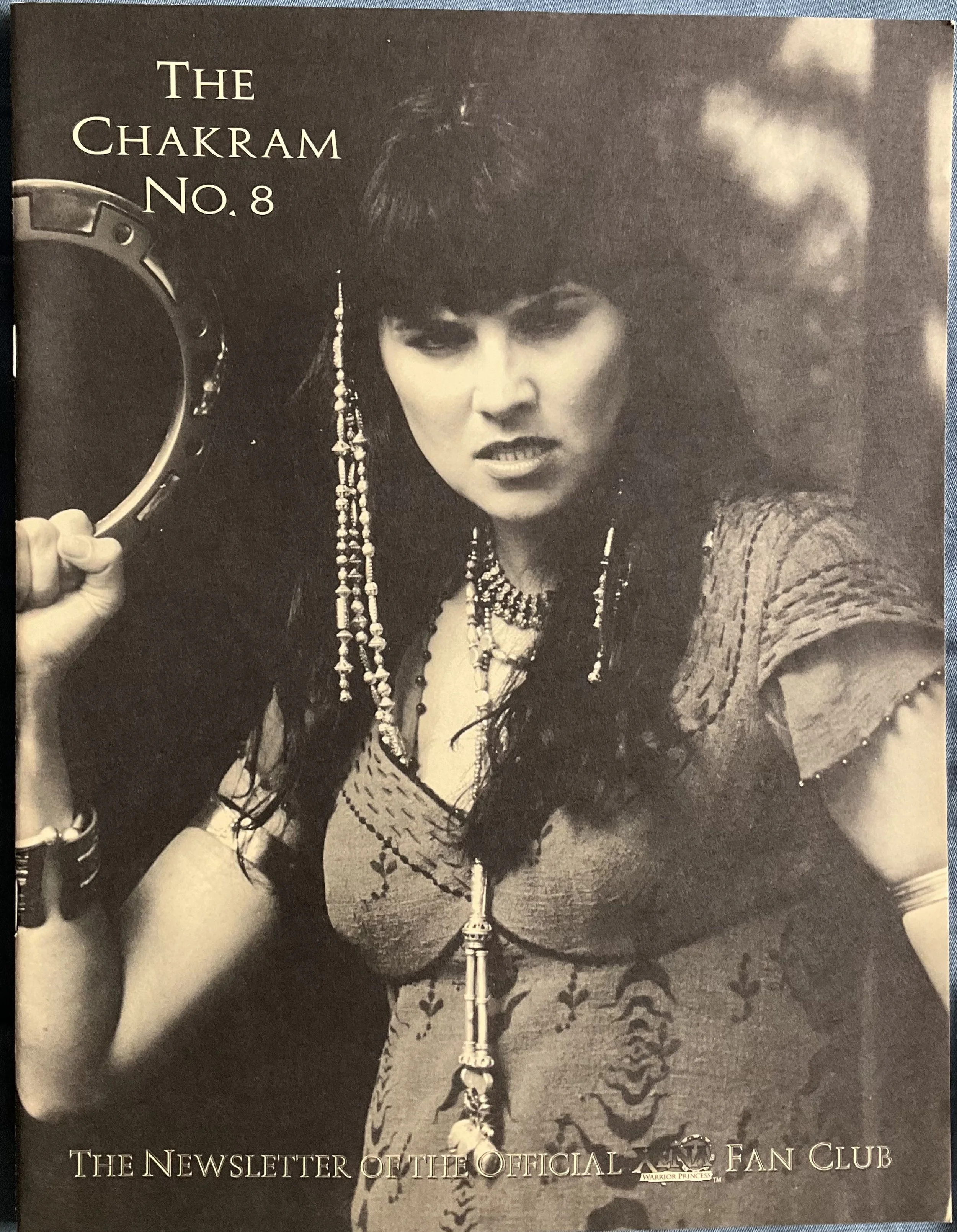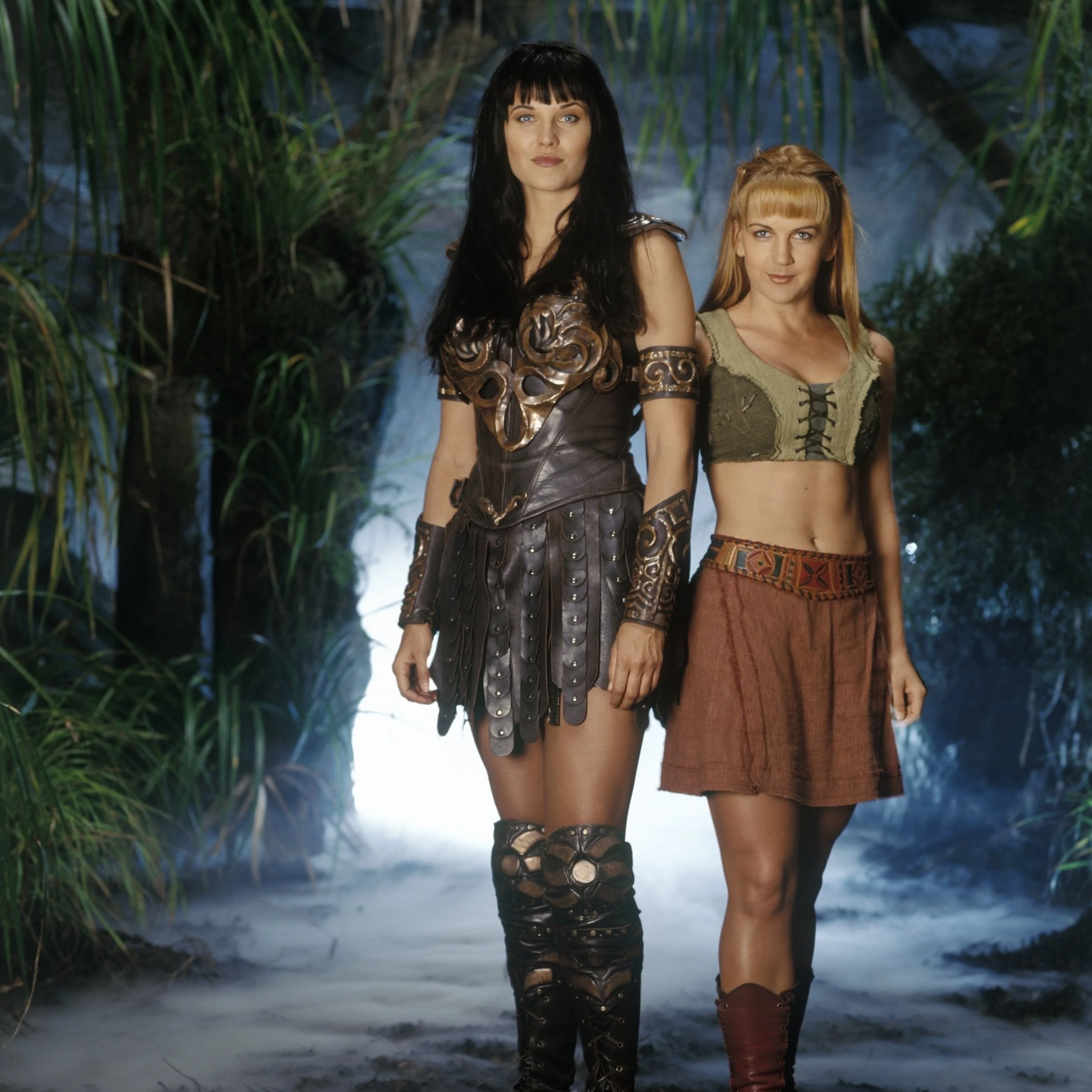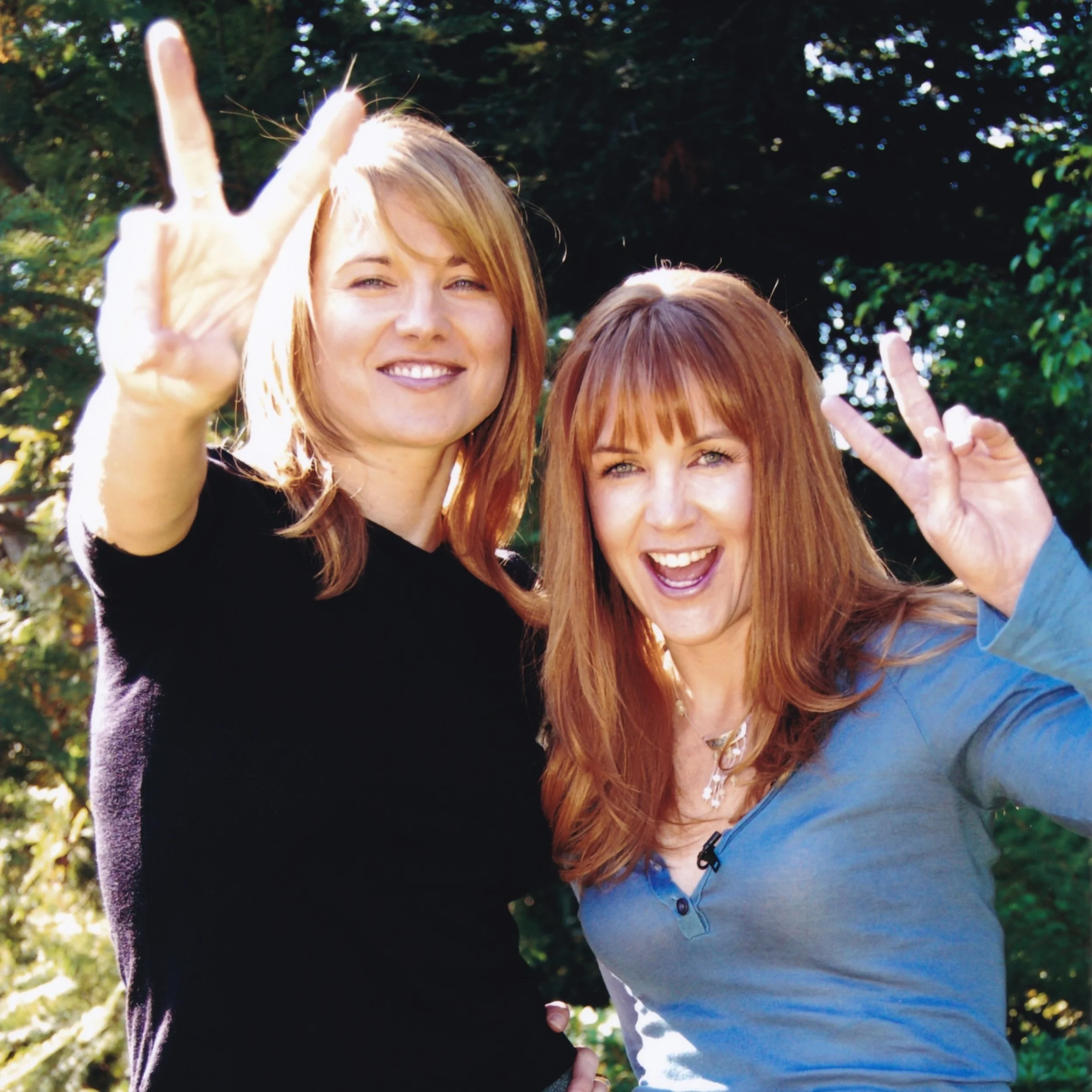Eric Gruendemann
Co-Executive Producer
The Chakram Newsletter: Issue 08
SD: You’re having a new director, Ken Girotti, for the last episode of the season, “Ides of March.” He’s walking into a series where everyone’s been working together for years. How do you prepare him?
Eric: One of the major jobs Chloe Smith (Producer) and I do is work with the directors to lead them into our path, if you will. Each director is going to bring their own vision to the script, but what you try to do on a tv series - and that’s why it’s more of a producer-driven medium than a director-driven medium - is let them do what they do best but within the confines of what your show is. It’s getting them up to speed.
First we send them episodes so they can see what we’re about if they haven’t seen the show before. It’s really talking to them about thematically where we’re going. A lot of times they won’t know what has been shot for the last five or six episodes. As you know, on our show, we follow very specific lines. From a thematic and from a story element, each week doesn’t necessarily build exactly on the last week. But there’s a general flow to where we’re going with things. And it’s getting the director involved in that. Getting them to know the characters.
Also, learning our style of working in New Zealand. We do things a little differently than they do in the U.S. which is different from Canada which is different from England, etc. Knowing the mechanics of how we shoot things down here and what they are realistically able to achieve in a day and things like that.
For instance, with Ken Girotti, Chloe and I intend to spend much more time with him than we would with someone who’s been here five or six times and knows the drill. Bruce Campbell is directing the Hercules episode right now and he’s directed for us several times before so he knows what I’m going to want and I know what to expect of him. It makes it a little easier.
But it’s also fun to see people bring new ideas and new ways of thinking into the organization. Although some of them don’t work for us, some of them are great ideas and we do it. It’s really about fostering and nurturing more than anything else and steering people in the right direction if they’re going in the wrong direction.
SD: I was wondering when you decide to bring in a new director?
Eric: Ken is a very gifted person who has been alluding us for quite a while and it just so happened that this was a time when he was available and we thought it was a good idea. It’s a very subjective thing with new directors. We always like to bring in new blood because we believe that builds on top of the show. There are also our old favorites that do a wonderful job for us each time and we like to bring them back as well.
It’s like any other organization where you want to bring in new blood to keep it fresh and interesting, but you also have a certain standard. Bringing in someone new is always a gamble, but then someone who’s done ten episodes that are great for you before is a gamble, too, because you never know where they are in their own personal lives.
SD: It might just be a bad week.
Eric: Absolutely. I have a bad week all the time. (laughs) So our philosophy is to always try to bring in some new people and try to keep the people who have done good work for us in the past. Revolving through the roster if you will.
SD: Where do you know Ken from?
Eric: I’ve never met Ken before in my life! (laughs)
SD (laughs): Actually, I didn’t mean personally. Where did you hear about him?
Eric: It’s a very word of mouth industry and we’ve heard very good things about him. We started researching him about a year ago and he was very interested in doing our show. It’s people who respond to our show and we see their work. We saw some work he’d done and thought it was visually interesting and he got good performances.
SD: “Ides of March” is going to be very visual. Ken’s style of work is something you thought might go well with this particular episode?
Eric: Yes. Absolutely. We’ve had very detailed discussions about how he plans to shoot some of the critical scenes. It is our final episode of the season and because there’s a lot of big, life-changing stuff happening, we have to make sure he doesn’t go out on a limb too far away from our vision.
But Renaissance probably has some of the most liberal people in the industry in terms of hiring the people we want to work with and then letting them do their job. Most good directors look to us for guidance anyway and say, “Okay, what do you want to feel at the end of this scene?” Not to say that it’s not on the written page, but there are a hundred ways to interpret a script and the good ones always want to get absolute clarification of what they’re doing. That where they’re taking the characters is where we also intend to have them taken.
SD: You have referred to the “vision” of the show - part of your job was to keep that in focus for new people coming in.
Eric: Yes.
SD: Do you, yourself, ever get any ideas for the show in terms of stories?
Eric: If you look at how the paradigm works, we’re a very collaborative organization. Rob Tapert is the center of the universe and then R.J. Stewart and the writing staff. They and Rob kick around the ideas and then R.J. or Rob will call and say this is what we want to do and tell me in broad terms and ask what I think.
There are several levels of running a tv show. There is the conceptual level. We are now starting to talk about things we’re going to be shooting in September or October of this year and it’s March now. We’re also talking about things that we’re going to be shooting in July. As well as things for April and things for tomorrow. Everybody needs to be kept abreast.
I tend to be a very vocal person about my opinions. (laughs) But that’s part of the fun of it, I think. We all respect each other very much. Certainly, over the years, if R.J. said, “What do you think about this.” I might say, “Boy, it scares me from a story or a production standpoint, maybe we can do something like this.”
The ideas for the show are really generated out of Rob and the writers, but they normally bring it to me at a very early stage and say A. Can it be done? And B. What do you think? And, like any other committee, you’re only as good or bad as your weakest link. Sometimes, if we don’t all agree, then we say maybe we should scrap that entirely and go with something else or maybe we can build on that. That’s the process of keeping the show fresh - throwing out the wildest, craziest, ideas and not necessarily going with that specific idea but that may foster another.
SD: Set off a chain in someone else’s head. And having the freedom to do that.
Eric: Exactly.
SD: People who work on the show are always saying they feel to speak up.
Eric: The directors sometimes call me and say, “Look, this isn’t scripted at all, but the actors and I really think it’s interesting.” If it’s not too far off the mark, I’ll say, “Shoot it both ways.” Or if I think it’s completely off I’ll say don’t do it. But very seldom is it that way. To me, if five very talented people are sitting on the set saying, “We’re in this situation and we think there’s something that could be useful or could be a real charmed moment,” you don’t want to miss that kind of magic when it comes along. A lot of the greatest moments of tv and film are ad-libbed. Oftentimes we will use it, perhaps we won’t. But, at the end of the day, if you didn’t capture it on film and see if it works, you’ll never know.
SD: You would have lost it forever.
Eric: Exactly.
SD: How was Renee as a director?
Eric: She was great!
SD: She said she was waiting for her airline ticket. (laughing)
Eric: (laughs) She did a great job. She was very, very prepared. Renee is very conscientious and was prepping for months beforehand. We had the luxury of having the script fairly early on. I saw the cut before the online version yesterday and I think it’s very cute and funny. When you’re acting and directing at the same time, it’s triple the work, not just double, because you have to switch gears all the time. I never recommend for anyone to do it. Oftentimes, Bruce has directed and acted and I think it’s cause for mental meltdown at the end. But Renee handled herself very well and was very confident in what she wanted and, I think, turned in a fun, good episode. I think the fans are gonna love it.
SD: She’s only the third woman director? It seems like this is a woman’s show. But there aren’t a whole lot of female directors in Hollywood.
Eric: We look for a very specific chemistry. Someone who has done a lot of tv, a lot of action tv, a lot of dramatic action tv, and, preferably, special effects work as well. Even if our shows are not effects heavy, we never have a show with less than 20 or 30 effects in them. And what we have found is there aren’t a lot of people that fit that guideline. And we’ve seen a lot of tapes.
We have a lot of women making decisions about the characters. There are probably more women than men. So it is something that we have been trying to rectify. We try to use the best people we see. And, by and large, a lot of people that we feel, by their past experience, have the chops to do it, are men.
SD: I hadn’t realized she was only the third woman director.
Eric: That’s true. We’ve had very few and many fewer than we’d like. And it hasn’t been for lack of trying. We go through periods where we say we’re actively going to to try and get new directors and get new female directors and that may be at a time when nobody’s available. Some of it’s lucy. Sometimes we might have found someone that we thought was great and then they do a feature film or aren’t available for seven months and by then you’ve gotten another set of people that you like and you’re in the “Let’s work with people that we know” stage.
SD: Well, maybe you’ve just added one to the mix?
Eric: We sure have.
SD: You said you’re talking about shows in April, July, Sept, Oct. I know there are story sessions for the next season at the end of the season you’re filming. How does this work? Once a week. “Today we’re going to talk about the big picture?” Then, “Tuesday we talk about July.”
Eric: Rob and R.J. have in their minds where they want the show to go in general. In the second season, we were talking about where we wanted to be in the fifth season. They’ll have conversations three years into the future. A lot of those ideas don’t eventuate, but a lot of them do. The general arc of where we want the show to go, where the two characters are going to go and how they were going to interact - the week to week mechanics of how that’s actually happening changes all the time. It’s a living organism. But we all tend to talk as much as we can about the future.
Just today Rob and I were talking about the first 12 episodes for next season. They may just be one line things like, “Xena and Gabrielle go here and encounter this person.”
Our jobs - Rob, R.J. and myself - are largely conceptual in the sense that if I know this is the direction we’re going. I may need to bring more people on staff in that department. For instance, if we’re doing a bunch of huge costume dramas.
It's managing where we want to go. You can’t just turn around and say, “Next week we want to go to India,” and have it work. So we talk in conceptual terms and we also talk in semi-conceptual terms which might be. “Okay, we know that episode four next season is going to be the episode where we do such and such.” Even though we don’t have a beat sheet for it, we know that we’re gonna need vampires. So I’ll start the communication with the artisans who will work on that kind of thing and start talking conceptually with my dept heads in terms of, “This may not happen, but start thinking about.” And what we’re doing three weeks down the line we may have a beat sheet or a script for and we’re actively looking at the real mechanics of how to produce that show.
Sometimes, we all talk together, but sometimes R.J. and I talk, Rob talks to R.J., I talk to Rob and then the studio talks to all of us. I may wake up one day and say, “I’m really worried about so and so. Rob mentioned a couple months ago that he wanted to go to the South Island (of New Zealand) to do something that replicates something else and I really need to get onto that cause it’s been festering in the back of my mind and I realize we can’t do it or I realize a problem I hadn’t thought about.” It’s really an evolving thing.
Then you have the episode you're shooting next week and the episode you’re shooting now. And you have the episodes you've already shot. Rob will call me and say, “We just cut together the show and it's lousy because the main scene just didn't work right. We were rushing at the end. We need to reshoot or get a different actor to do a voiceover.” So you're even dealing with 8 or 10 episodes you have already shot In terms of information dumping. I try to dump the finished ones so I can concentrate on the ones that are the most immediately problematic. It is very free flowing.
We all know we need to be up to speed on the shows that are happening next month in extreme detail and then, after that, it's conceptual and semi-conceptual. Here we are in early March and there are elements we’ll shoot in late June that I've already spent money on talked to people about and started to have drawings made because I know it's going to take 12 weeks to produce certain things to have them ready to shoot. And I wouldn’t know that unless we were talking far in the future.
SD: Like building the India village.
Eric: Exactly.
SD: When you're building a village to represent India, you also plan a use for the same structures for future episodes that have nothing to do with India, yes?
Eric: That’s right. All sets and buildings have a substructure that doesn't get seen but keeps the thing up. The majority of the cost goes into putting up that substructure. Most stage sets are fairly similar in that if you are creating an urban setting, you're probably going to have a main street and tangents off it. We create shoot-offs which means that if you’re shooting in one direction, you don’t see the real scenery behind it. We have put up a wall.
We’ve put this thing up and it's been India and let's say we want to go to New York City. We may use the substructure and knock down one portion because we need the Flatiron building. But in general the structure remains the same. We may have to pull meet of the outer workings off because we have created something that is masonry and stone and we need to go to something more adobe. It's really about utilizing our resources.
That’s one of the main things I was very strong about early on. If we’re going to create this kind of production scale, we need to be smart and anticipate things as opposed to just saying, “We need India in two weeks.” In motion pictures and tv the saying goes that you can have any two of three ways - fast, cheap or good. You can never have all three. You have to choose two. My feeling is fast is the worst. I'd rather have it cheap and good. Good is the most important and cheap is the second most important. Because everything comes down to money in this business and fast always costs money if you need to do it that way and you still have to have it good. That's my 2-second producer’s credo.


